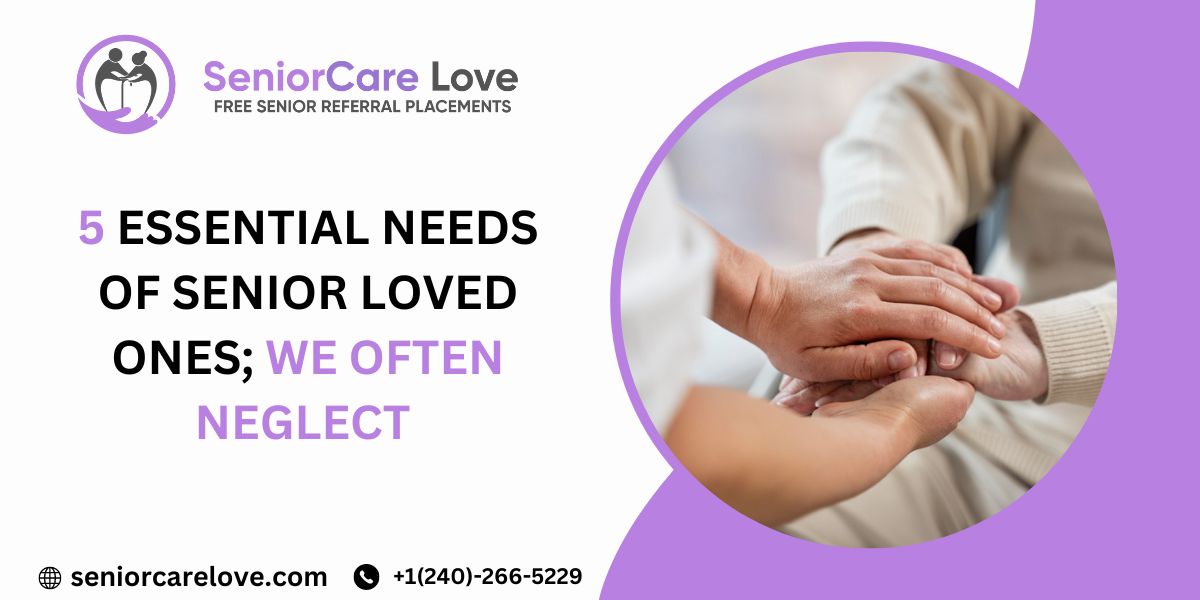Because None of Us Signed Up for This (But Here We Are)
We always think we’re ready for life’s curveballs—until life lobs us a fast one we can’t even see coming (usually while we’re sipping coffee and minding our own business). That’s how dementia enters most of our lives. Not as a polite knock at the door, but more like an unexpected houseguest who moves in and changes all the locks.
At Senior Care Love, we’ve walked this road with countless families (sometimes hobbling along in our slightly sensible shoes). So if your family is staring down this bewildering path, please know: we’re already out here, waving you over. You do not have to do this alone.
What Exactly Are We Dealing With? (Spoiler: It’s Not Just Forgetfulness)
Let’s clear something up. Dementia isn’t just “grandpa forgetting where he put his socks” (although yes, that happens too—along with wallets, dentures, and once, in a truly horrifying twist, the neighbor’s Chihuahua).
Dementia is an umbrella term for symptoms affecting memory, thinking, and social abilities severely enough to interfere with daily life. Alzheimer’s is the most common form, but there are others: vascular dementia, Lewy body dementia, frontotemporal dementia… each with its own peculiar brand of mischief.
Understanding what you’re facing is step one—because once we stop calling it “old age forgetfulness,” we can actually get down to the important stuff: like planning support, building coping strategies, and yes, still finding reasons to laugh. (We promise, laughter is allowed—and needed—on this journey.)
A Little Personal Note (Because This Hits Home for Us Too)
If you’ve hung around Senior Care Love long enough, you’ll know we’re big fans of compassion sprinkled liberally with humor. Why? Because we’ve been there too.
Not long ago, our team helped a family whose matriarch, Lorraine, swore up and down her deceased husband was hiding in the pantry with her favorite gin. Was it heartbreaking? Absolutely. But together, we gently redirected her, poured a little tonic (sans gin), and listened to her stories—because sometimes honoring someone’s reality matters more than dragging them into ours.
That’s the messy, tender truth about dementia care. It’s rarely tidy. Often unpredictable. But always worth the grace.
The Big Question: Should You Keep Your Loved One at Home or Consider a Memory Care Community?
Ah, the million-dollar dilemma (or more like, the million-tear dilemma).
Here’s where we like to say: There’s no one-size-fits-all. Some families thrive by keeping their loved one at home with structured routines and professional in-home care. Others find that dedicated memory care facilities—where staff are trained to handle everything from sundowning to wandering—offer both safety and specialized engagement that’s hard to replicate at home.
And by the way, if you’re losing sleep at 2 AM Googling “best dementia care near me,” you’re in good company. We’ve all been there. Just remember, it’s not about guilt—it’s about getting help that respects both your loved one’s dignity and your family’s sanity.
How Do You Even Begin Talking About It? (Deep Breaths, Friends)
Telling mom she might need more help—or explaining to dad why he can’t drive anymore—is right up there with the world’s most awkward conversations (second only to “birds and the bees,” honestly).
A few quick pointers from our well-worn playbook:
- Choose calm moments: Mid-meltdown is not the time for life decisions.
- Use “we” language: (“We want to make sure you’re safe” vs. “You keep forgetting where you are.”)
- Allow feelings: Expect pushback, fear, maybe even anger. That’s okay. It’s a conversation, not a verdict.
- Loop in professionals: Doctors, geriatric care managers, and yes—people like us at Senior Care Love—can help steer tricky discussions.
We like to remind families: these talks aren’t one-and-done. They’re a series of gentle nudges. You’ll circle back, revisit, revise. (And probably have chocolate on standby for stress.)
Finding Support (Because White-Knuckling It Alone Is Overrated)
Repeat after us: We do not have to be martyrs.
The best dementia care plans are like a big potluck—everyone brings a dish (or support role). Friends, family, local adult day programs, professional caregivers, memory care communities… each has a part to play.
Many communities offer respite programs where your loved one spends a few days or weeks in a care setting—giving you a chance to recharge (or just remember how glorious an uninterrupted nap feels).
And if your brain ever mutters “but I should be able to handle this myself,” kindly tell it to hush. This is hard. It’s okay to need help.
A Word on Keeping Joy Alive (Yes, It’s Still There)
We’ve witnessed some downright magical moments in dementia care—like 85-year-old Edith belting out Frank Sinatra lyrics even though she couldn’t remember her daughter’s name that morning.
Music, art, pet therapy, reminiscing over old photo albums—these aren’t just “nice extras.” They’re lifelines that connect your loved one to bits of themselves that dementia can’t fully steal.
So dust off the records, flip through scrapbooks, dance badly in the kitchen. (We certainly do—ask our office team, who’ve walked in on more than one impromptu conga line.)
Little Things Make Big Differences
You don’t have to overhaul your entire life overnight. Sometimes dementia care is in the tiny tweaks:
- Labels on drawers and doors.
- Night lights to reduce confusion.
- Simple outfits that are easy to slip on.
- One calm voice giving instructions instead of a chorus.
Celebrate the small wins (even if it’s just getting socks on the right feet). And forgive the slip-ups—your loved one’s and your own. Trust us, we’ve seen caregivers accidentally refrigerate the TV remote more times than we can count. (Solidarity, friends.)
Quick Tips for Self-Care (Otherwise Known as “Keeping Your Own Marbles”)
- Hydrate. (Coffee is divine, but water still counts.)
- Move your body—even if it’s just wiggling to music in the living room.
- Talk to people who get it. Not everyone does, and that’s okay.
- Seek counseling if the emotional load feels too heavy.
- Schedule something just for you each week—guilt-free.
We know self-care can feel laughably out of reach, like one of those Pinterest boards for minimalist pantries (spoiler: ours look nothing like that). But small, consistent kindness to yourself is what fuels your ability to care for someone else.
FAQs About Dementia Care (Because Your Brain Needs a Breather Too)
Q: Is dementia the same as Alzheimer’s?
Nope! Alzheimer’s is the most common type of dementia, but dementia itself is a broad term for symptoms like memory loss and cognitive decline from various causes.
Q: How do we know when it’s time for professional care?
When safety becomes a concern—wandering, falls, missed medications—or the stress on family becomes overwhelming, it may be time to explore memory care or in-home professionals.
Q: Will my loved one forget me?
Maybe. Maybe not. But love often outlasts recognition. A familiar voice, a gentle touch—these still mean the world.
Q: Does memory care mean we’re giving up?
Not at all. It means you’re honoring their needs and ensuring safety and engagement in a specialized environment.
Q: How can Senior Care Love help?
We connect families with tailored care options—everything from in-home support to vetted memory care communities. We’ll walk every step with you (holding hands or occasionally toting a box of tissues).
So Where Does That Leave Us?
Hopefully, somewhere a little lighter. Or at least a little less alone.
Because dementia may be one of life’s hardest roads, but it doesn’t have to be a lonely one. Around here, we’re all about holding each other up (with plenty of side hugs and half-melted chocolate in our bags).
So let’s walk this journey together—awkward steps, missteps, dance steps and all.
Need an extra hand (or heart) right now?
Reach out to us at Senior Care Love. We’re here—listening, guiding, and always, always cheering you on.








